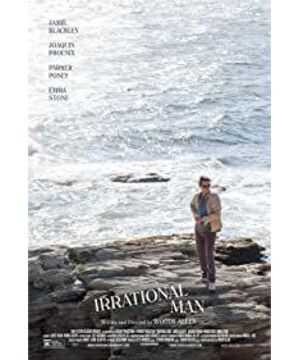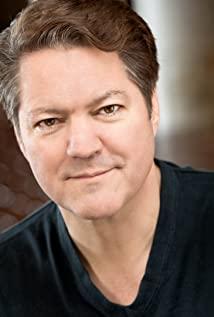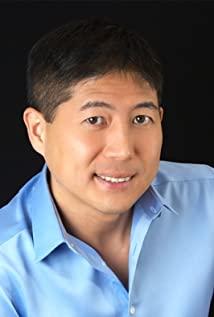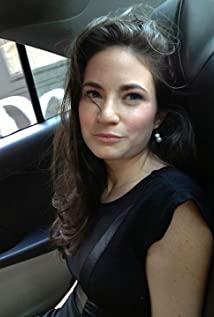(Spoiler) "Does Philosophy lead to insanity?" This is a question I often get asked when I introduce myself to Philosophy to new acquaintances. In the past, I was used to serious defense, and even mentioned that celebrities such as Bruce Lee, Huang Zihua, and Chen Qizhen had all studied philosophy in college... But after Aaron's "Irrational Man" was released, I will probably spend more money in the future. It takes a lot of energy to answer the more annoying question than "Do you want to beg for food after graduation from the philosophy department?" Because "Love" is a crime story about a crazy philosophy professor. Living Aaron has probably read more philosophy books than the average person, but he slapped philosophy three times in "Love"; firstly, the philosophers in the play also believe in philosophy; secondly, the philosophical theories about ethics are not as good as morality The intuition is accurate; and finally, the playful attitude that fills the entire play, as if tossing "Seriously and losing" to anyone seriously thinking about a philosophical subject and snickering away.
"The Unreasonable"'s male protagonist, Abe, is a star-level philosophy professor who has suffered major interpersonal setbacks, depression and alcoholism, and has transferred schools to work. His melancholy and knowledge deeply attracted a female colleague and a female student Jill, the two beauties threw their arms in his arms, and he was not happy either. He taught the ethics of Kant and other famous masters in class, but said that those truths were just the crap of philosophers; "middle. Abe doesn't believe in moral laws and thinks that individual situations are more important, and as a result he really came across an opportunity to practice. He occasionally learns that a divorced woman will lose custody of her child due to a "bad" judge's decision, and the child will live with a "bad" father. Abe thought that if he could kill the judge, he would help the woman, and because he was just an unrelated person, he would not be discovered. From the moment he started planning the "perfect crime plan", he switched from the camp of "life is empty and meaningless" to the side of "meaningful life", became brilliant, and more formally developed a teacher-student relationship with Jill (pity her). that loyal little boyfriend). However, an expert in philosophy is not an expert in crime, and Abe's crime leaves open holes that make Jill suspicious. The later episodes may disgust some people who hate TV soap operas, because it is too old-fashioned - Abe, who is as strong as iron, plots to kill for self-protection (that scene is reminiscent of Ding Youkang in "The Promise" , is also the same as he sweetly talked to her while waiting for the moment to "push you to die"), but instead fell into his own trap (the most trite way - falling from a height).
Philosophers are here the objects of irony, and ethical doctrines are the material of irony. The associations of "rationality" and "wisdom" evoked by the word "philosophy" were replaced by other associations of "infatuation" and "hypocrisy." The falsity lies not in his disbelief in what he teaches in class (because he has already stated his disapproval of those doctrines), but in his practice of his own "ethics of the existential situation": at first it seems that he wants to be a chivalrous man, Living in a detached position in a society governed by the rule of law, he became a "transcendent person" who "re-set all value standards", and thus got rid of the quagmire of existential anxiety; but he was not prepared to pay the price for his "transcendent" practice - the real All the knights have the will to be a martyr, but Abe does not. He who wants to kill someone doesn't love Jill at all, he's just a "cheap guy" who obeys his desires, or a lunatic, or both.
Jill, as Abe's opponent, is the second slap in the face of the "philosopher". When she discovers the truth, no matter how philosophical Abe makes a philosophical justification, it's useless, because her moral intuition makes the judgment for her. In other words, no matter how much Jill learns in Abe's class, it's still the most reliable intuition (if intuition precedes rational thinking, how do people get rid of prejudice?).
The loudest slap came from Aaron the Living. He has always been interested in philosophical subjects, but the more serious he is, the more disgusted the audience is. It took him a lot of hard work to get rid of the "chattering" image of the year, and of course he will not repeat the same mistakes today. Some critics say that only Aaron the Living can pass the stage with jazz music while talking about Kant's philosophy at the beginning of the film; the problem is that this combination does not only appear at the beginning of the film, but the more he goes on, the more trouble he feels. Jazz runs throughout the play, presenting human sinfulness and ignorance with a lighthearted sense of humor, without plunging the audience into the character's situation. The game-like sense of detachment makes it unnecessary to experience the struggles and thoughts of the characters, let alone who to sympathize with. Indeed, in the face of issues such as the meaning of life and sin, heaviness is not inevitable, and detachment is also a realm. It's a pity that the director started a novel and interesting beginning, but turned to the most old-fashioned and boring plot to end. The so-called "randomness" is not fully explored (the coincidence is not more than the level of ordinary drama "acting and acting"), and it is not as good as the interpretation of the previous "Match Point".
I hope that the fans of Living Aaron will not be murdered when they see this. In fact, the story is very simple, and in the hands of other screenwriters, there may not be a living Aaron telling it so interestingly. Abe was traumatized to the point of depression because his friend, wife, and mother left one after another, and he saw the world as gray. Later, he believed that he was detached from the world, and he committed a "perfect crime" that was full of flaws, which is a manic characteristic. In other words, he is a manic man, but his philosophical background confuses others - the title already indicates that this is a madman's story, but he is mad in the way of a philosopher.
(Originally published in "Times Forum" issue 1466, October 4, 2015)
View more about Irrational Man reviews











